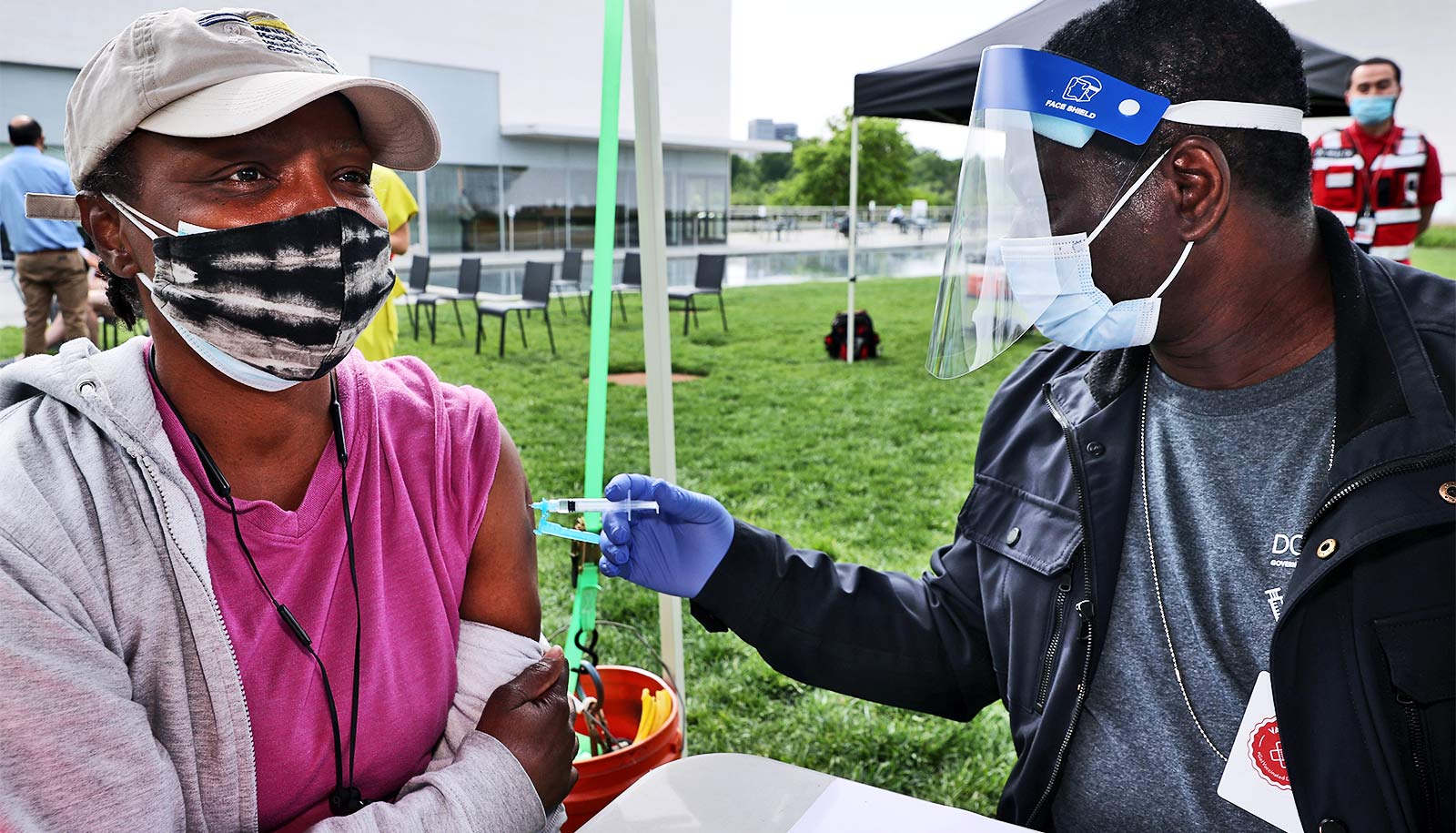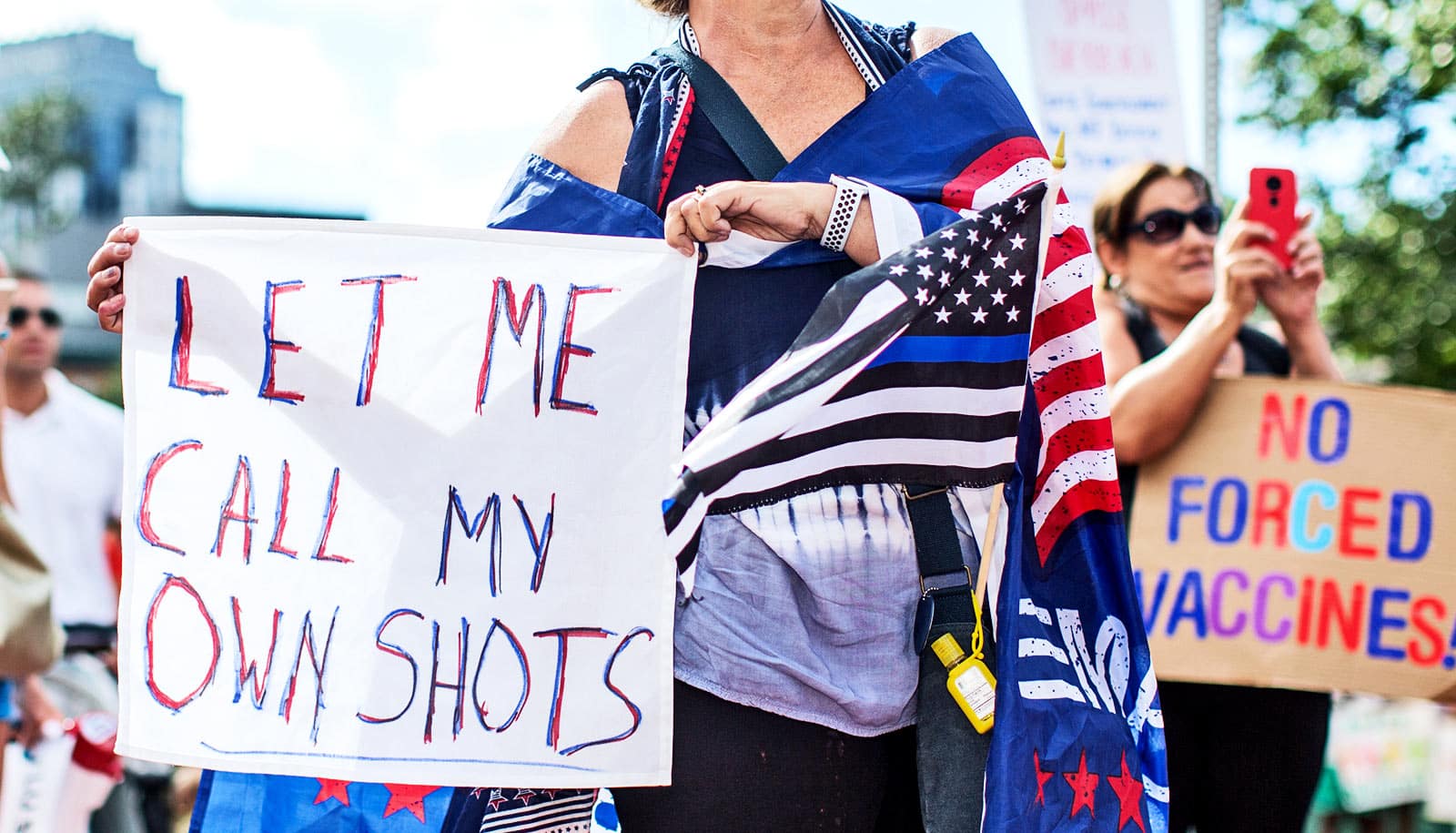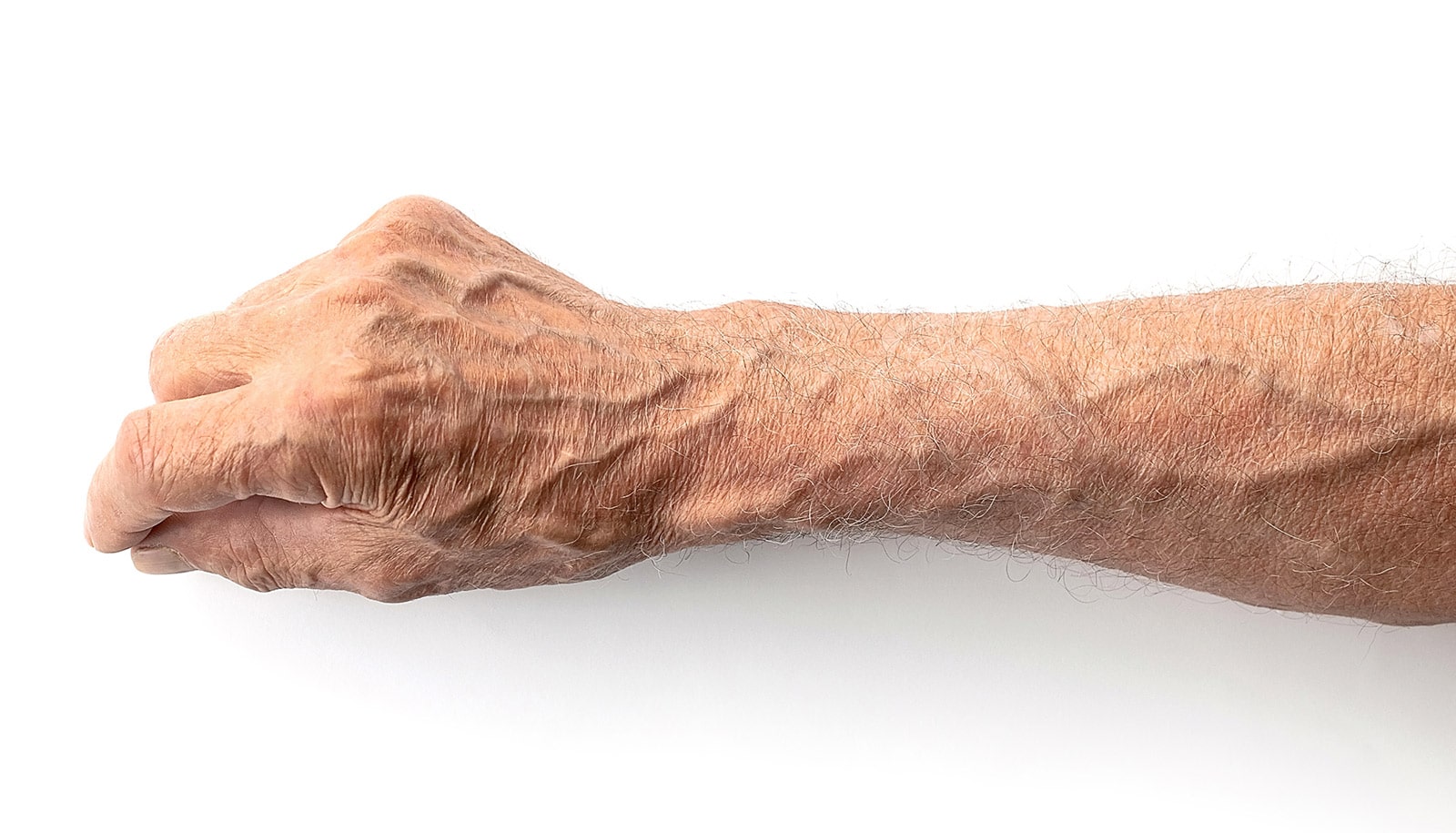COVID-19 vaccines pose only trivial risk of blood clots (or venous thromboembolism), according to a new study.
The findings run counter to claims from anti-vaccine proponents.
In addition, the study also found that becoming infected with COVID-19 poses a significant risk of venous thromboembolism (VTE).
“This population-based study found only a trivial risk for VTE following COVID-19 vaccination,” says Peter L. Elkin, professor and chair of the biomedical informatics department in the Jacobs School of Medicine and Biomedical Sciences at the University at Buffalo.
“Given the large risk of VTE from COVID-19 infection, the risk-benefit ratio strongly favored vaccination,” says Elkin, first author of the study published in the Journal of Clinical and Translational Science.
The researchers launched the study in order to investigate whether or not receiving a COVID-19 vaccine put one at higher risk for developing VTE, a claim that had circulated widely on social media and in mainstream media.
“There was concern by some that COVID-19 vaccination might cause undue harm and VTE was one of the mechanisms implicated by anti-vaxxers,” Elkin says. “We wanted to know the truth.”
The study period ran from January 1, 2020 (just prior to the detection in the US of COVID-19) until March 6, 2022, and was based on data from veterans aged 45 years and older from the Department of Veterans Affairs National Surveillance Tool.
The data included 855,686 people who had received at least one dose of a SARS-CoV-2 vaccine and an unvaccinated control group of 321,676 people.
To clearly identify whether the vaccines might affect risk for VTE, the researchers accounted for many factors that are predictors for VTE, including age, race, sex, body mass index, and others.
The study found that vaccinated individuals had a VTE rate of 1.3755 per 1,000 people, which is 0.1% over the baseline VTE rate of 1.3741 per 1,000 in unvaccinated people.
“The excess risk was about 1.4 cases per million patients vaccinated,” says Elkin. “Given the fact that the rate of VTE with COVID-19 is several orders of magnitude greater than the trivial risk from vaccination, our study reinforces the safety and importance of staying current with COVID 19 vaccinations.”
He says it has been reported in other studies that the very slight increased risk for VTE in a few vaccinated patients may be attributed to a phenomenon called Vaccine Induced Immune Thrombotic Thrombocytopenia (VITT). VITT is an immune response that results in fewer platelets that are also malformed and stickier, which can lead to VTE.
The study is an example of how translational science can be applied to the most important scientific questions that face society today, in this case by demonstrating the safety of COVID-19 vaccines, Elkin notes.
“This study shows the power of big data where we can use electronic health record data in a rigorous way to answer questions that could never be properly answered with a randomized controlled trial due to the small effect size and the need to recruit millions of patients to the trial,” he says.
“It’s an example of how biomedical informatics is answering important clinical questions that can help people to recognize the benefit of COVID-19 vaccination and improve adherence to this approved clinical guideline,” says Elkin.
Additional coauthors are from the Department of Veterans Affairs, Knowledge-based Systems, the VA Western New York Healthcare System, Harvard Medical School, the University of Vermont, and the University at Buffalo.
The research was funded in part by grants from the National Library of Medicine and the National Center for the Advancement of Translational Sciences (NCATS) of the National Institutes of Health.
Source: University at Buffalo



